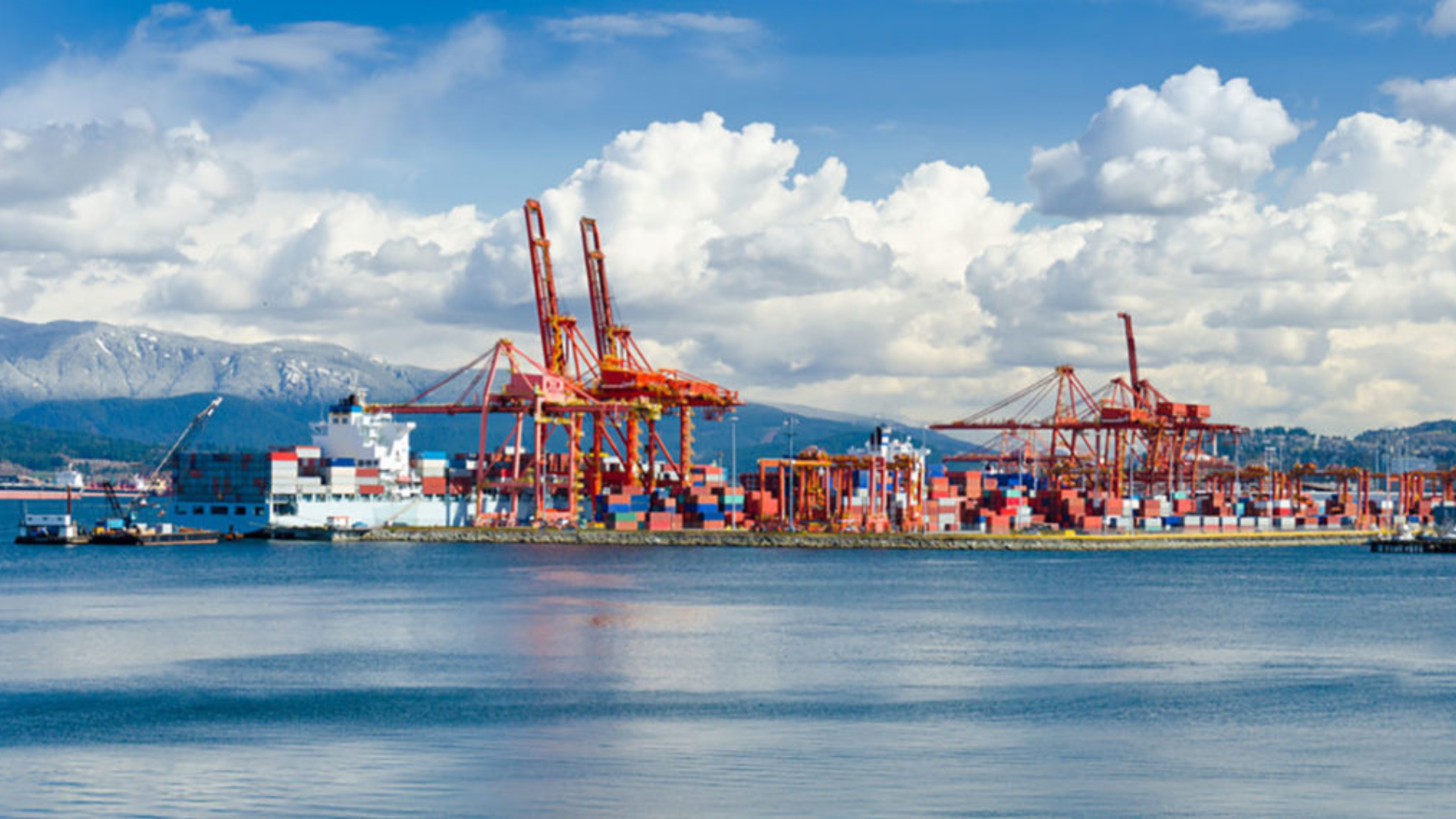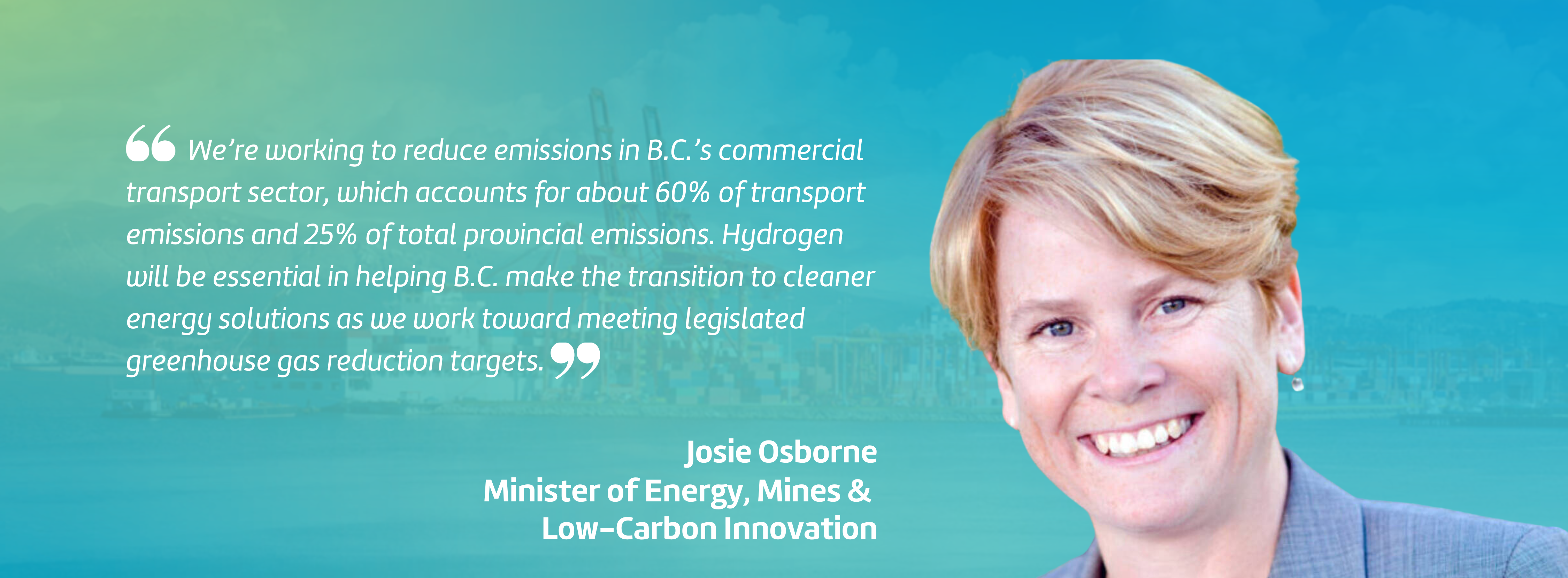
A consortium of Canadian clean energy companies is delivering a first-of-its-kind project to test and demonstrate equipment for the decarbonization of operations at the Port of Vancouver, the largest port in Canada and the Pacific Northwest.
Funded by the Provincial Government of British Columbia, the goal of the B.C. Hydrogen Ports (BCH2 Ports) project is to reduce CO2 emissions generated by shipping and transport operations by piloting fuel cell electric yard and drayage trucks, powered by Ballard’s FCmove® heavy-duty fuel cell modules and supported by a fueling infrastructure. The project is expected to begin in early 2024.
Watch a video on the project here:
With dedicated efforts to support the use of hydrogen and highlighting that the transport sector is one of the most difficult to decarbonize, the BCH2 Ports Project is the province’s first large-scale project to use hydrogen and fuel cells in the shipping and transportation sectors.
The project is a collaboration between public and private companies in Canada, led by HTEC, a clean-hydrogen production, distribution, dispensing, and fleet-services company. The project will demonstrate four fuel-cell electric yard trucks, and two Class 8 drayage trucks that HTEC will lease to fleet operators. The fuel-cell electric trucks are being developed by Hexagon using its Type IV hydrogen-storage system and high-energy density Li-ion battery packs and powered by Ballard’s FCmove®-HD+ fuel-cell engine, designed specifically for heavy-duty mobility applications.

As part of the project, one of HTEC’s higher capacity fueling station, initially serving heavy-duty hydrogen electric vehicles, will also be installed.
The project partners estimate that the BCH2 pilot will be able to reduce CO2 emissions by 110 kilotons equivalent per year. They also believe it will serve as a model for further adoption of hydrogen in Canada.